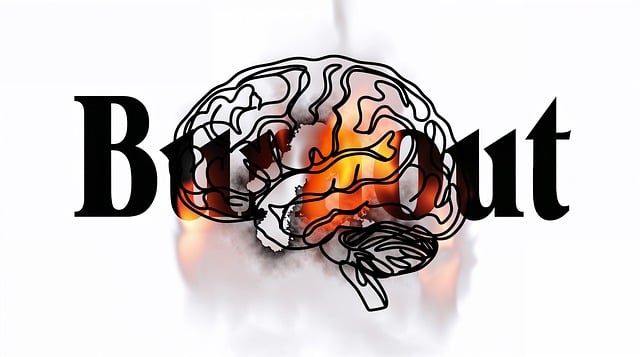Mental health professionals face unique risks in treating young children and clients with bariatric evaluations. Specialized skills are needed for therapy, addressing emotional fragility in kids and weight-related sensitivities in bariatric cases. Self-care strategies and a supportive environment enhance resilience, allowing professionals to better manage stress and make ethical decisions. Comprehensive bariatric evaluations identify vulnerabilities and guide tailored interventions, promoting growth and well-being. Effective risk management involves tailoring approaches to developmental stages, building trust, and employing cultural competency for diverse client needs. Continuous monitoring ensures proactive identification of issues, leading to positive outcomes through dynamic, adaptive practices in therapy for young children and bariatric evaluations.
Mental health professionals face unique challenges in managing risks within their practice. This article guides you through essential risk management planning, addressing critical areas such as understanding risks in mental health practice, assessing vulnerability in young children, and bariatric evaluations. We provide a comprehensive guide on implementing risk strategies during therapy sessions and emphasize continuous monitoring for effective mitigation. By integrating these practices, professionals can ensure safer, more supportive environments for therapy, particularly when working with vulnerable populations like young children and those undergoing bariatric treatments.
- Understanding Risks in Mental Health Practice
- Assessing Vulnerability and Protective Factors in Young Children
- Bariatric Evaluations: A Comprehensive Guide for Mental Health Professionals
- Implementing Risk Management Strategies in Therapy Sessions
- Continuous Monitoring and Adjustment for Effective Risk Mitigation
Understanding Risks in Mental Health Practice

Mental health professionals encounter a diverse range of risks daily, from managing complex client cases to dealing with sensitive information. Understanding and mitigating these risks are pivotal for maintaining a safe and ethical practice. One key area is recognizing the unique challenges presented by various therapeutic settings and populations. For instance, therapists working with young children require specialized skills to navigate their delicate emotional states and ensure their well-being during therapy sessions. Similarly, bariatric evaluations introduce distinct considerations due to the sensitive nature of weight-related issues.
Professionals must also prioritize self-care strategies, such as developing inner strength and emotional regulation techniques, to manage the inherent stress associated with these roles. Effective risk management involves creating a supportive environment that fosters open communication, encourages ethical decision-making, and promotes effective stress management. By integrating these practices, mental health professionals can enhance their resilience and better support clients while mitigating potential risks in their daily work.
Assessing Vulnerability and Protective Factors in Young Children

Assessing vulnerability and protective factors in young children is a critical aspect of risk management planning for mental health professionals. This involves understanding the unique challenges faced by children, which can range from acute crises to long-term mental health issues. Through comprehensive evaluations, including bariatric assessments, therapists can gain insights into the child’s physical and emotional state, family dynamics, and environmental influences. By identifying vulnerabilities such as past traumas, abuse, or neglect, professionals can tailor interventions that provide much-needed support.
Mental health awareness among children is enhanced through crisis intervention guidance, which equips them with coping strategies to navigate distressing situations. Trauma support services play a pivotal role in rebuilding resilience and promoting healthy development. By addressing these factors proactively, mental health professionals not only mitigate risks but also foster growth and well-being in young clients, setting the foundation for a brighter future.
Bariatric Evaluations: A Comprehensive Guide for Mental Health Professionals

Bariatric evaluations are a critical component of comprehensive therapy for young children, especially those dealing with weight-related issues or co-morbidities. As mental health professionals, understanding bariatric medicine and its impact on pediatric patients is essential. This field involves complex considerations regarding emotional regulation, body image, and overall mental well-being. By integrating knowledge about bariatric procedures and their psychological effects, therapists can provide more effective support tailored to each child’s unique needs.
For instance, mindfulness meditation techniques have proven beneficial for both weight management and improving self-esteem in young individuals. These practices aid in emotional regulation, helping children cope with stress and anxiety often associated with significant weight changes. Furthermore, promoting a healthy relationship with food and the body can significantly enhance a child’s confidence, fostering a positive self-image that extends beyond physical attributes.
Implementing Risk Management Strategies in Therapy Sessions

Implementing effective risk management strategies is paramount for mental health professionals to ensure safe and therapeutic environments, especially during therapy sessions with vulnerable populations like young children. These strategies should be tailored to address unique risks associated with different client groups. For instance, when conducting therapy for young children, practitioners must consider their developmental stage, ensuring age-appropriate communication strategies and creating a supportive atmosphere that fosters trust.
Bariatric evaluations present another set of considerations. Healthcare providers must possess cultural competency training to navigate the diverse needs and beliefs of clients undergoing weight-loss treatments. Emotional intelligence plays a crucial role in recognizing and managing potential emotional triggers during these sessions, utilizing appropriate communication techniques to create a safe space for clients’ expressions and concerns.
Continuous Monitoring and Adjustment for Effective Risk Mitigation

Mental health professionals must adopt a dynamic approach to risk management, emphasizing continuous monitoring and adjustment for effective risk mitigation. Regularly evaluating clients’ progress, especially in therapy for young children or complex cases like bariatric evaluations, is crucial. By staying attuned to subtle shifts in emotional intelligence and cultural sensitivity within the therapeutic relationship, practitioners can proactively identify potential risks and adjust interventions accordingly.
This proactive strategy ensures that mental healthcare practices remain responsive to individuals’ evolving needs. Just as depression prevention strategies target at-risk populations, continuous monitoring allows for early intervention and tailored support, fostering a more positive outcome. Through such adaptive risk management, professionals can enhance the overall safety and efficacy of their services.
Effective risk management planning is paramount for mental health professionals to ensure safe and supportive environments, especially when working with vulnerable populations like young children and individuals undergoing bariatric evaluations. By understanding potential risks, assessing vulnerability, and implementing tailored strategies, therapists can foster a culture of safety. Continuous monitoring and adjustments are key to mitigating risks in therapy sessions, ultimately enhancing the quality of care provided. Integrating comprehensive guides for bariatric evaluations alongside focused approaches for young children’s therapy ensures professionals are equipped to handle diverse client needs while prioritizing their well-being.









